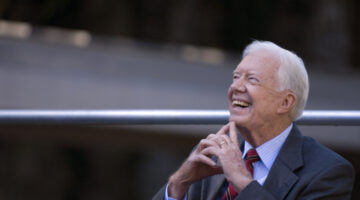The price of Boston Scientific Corp.’s (NYSE:BSX) $26 billion acquisition of Guidant Corp. just got a little steeper, after the subsidiary’s guilty plea to charges that it deliberately concealing problems with its implantable defibrillators earning it a $296 million penalty — the largest criminal penalty ever imposed on a device maker for violating the Food, Drug and Cosmetic Act, according to Food & Drug Administration commissioner Margaret Hamburg.
The plea makes official a deal the Natick, Mass.-based medical device maker agreed to in late 2009 to settle charges stemming from a four-year investigation into possible criminal violations of the Federal Food, Drug, and Cosmetic Act. Under the terms of the plea, which must still be approved by Judge Donovan Frank of the U.S. District Court for Minnesota, Guidant pleaded guilty today to withholding information from the FDA: specifically, to making a materially false statement about its Ventak Prizm 2DR implantable defibrillator in a required submission and to failing to notify the agency of a “correction” to its Contak Renewal defibrillators.
In November 2009, Boston Scientific announced that it would pay nearly $300 million to settle the case on behalf of Guidant, even though the alleged infractions occurred prior to its $26 billion acquisition of the Indianapolis-based company.

A Deep-dive Into Specialty Pharma
A specialty drug is a class of prescription medications used to treat complex, chronic or rare medical conditions. Although this classification was originally intended to define the treatment of rare, also termed “orphan” diseases, affecting fewer than 200,000 people in the US, more recently, specialty drugs have emerged as the cornerstone of treatment for chronic and complex diseases such as cancer, autoimmune conditions, diabetes, hepatitis C, and HIV/AIDS.
In February 2002, Guidant discovered a design flaw in the Ventak device, after receiving reports of failures. By April 2002, according to court documents, it had fixed the flaws and begun producing a corrected version of the device — but didn’t recall the defective products.
“Instead, it continued selling its inventory of defective units without disclosing either to physicians or the public the design flaw or malfunctions that had led to device failures,” wrote Judge Diane Wood of the U.S. Court of Appeals for the Seventh Circuit, adding that Guidant never mentioned the defects in subsequent press releases and filings with the Securities and Exchange Commission.
In 2004, the company began talks with Johnson & Johnson (NYSE:JNJ) for a possible merger. On Dec. 1 of that year Guidant put out a press release touting “highly positive news” about the potential for growth for its ICD and pacemaker businesses. Shares of Guidant rose nearly 8 percent in the week following the announcement, from about $65 per share to $70.
Two weeks later the J&J merger was revealed and Guidant’s stock again surged, eventually reaching $75 per share. But neither release mentioned the problems with the Ventak Prizm 2 DR; merger filings with the SEC were also silent about the defects.

BioLabs Pegasus Park Cultivates Life Science Ecosystem
Gabby Everett, the site director for BioLabs Pegasus Park, offered a tour of the space and shared some examples of why early-stage life science companies should choose North Texas.
Then, on March 13, 2005, 21-year-old Joshua Oukrop’s Ventak Prizm 2 DR short-circuited, killing him. Guidant told his doctor of the problems with the device, disclosed that it knew of 25 other such cases and told the physician that about 24,000 ICDs similar to Oukrop’s had been sold. When the doctor asked Guidant whether the other recipients would be told, the company said no, it did not want to “alarm” anyone, according to court documents.
The company kept its word in subsequent SEC filings and press releases, never mentioning the defect or Oukrop’s death. In fact, Guidant’s first public acknowledgment of the problem came in a letter to physicians issued about a month after its shareholders approved the JNJ deal, and then only because of an impending New York Times article that was to reveal the device’s flaws.
The FDA issued a national recall for the devices June 17, 2005; Guidant issued a physician communication and a press release the same day, disclosing 15 reports of failure of the Contak Renewal and Contak Renewal 2 defibrillators, out of approximately 16,000 implanted worldwide, and two memory error incidents among its four models of AVT defibrillators, out of about 21,000 implanted worldwide.
The Massachusetts Medical Devices Journal is the online journal of the medical devices industry in the Commonwealth and New England, providing day-to-day coverage of the devices that save lives, the people behind them, and the burgeoning trends and developments within the industry.












